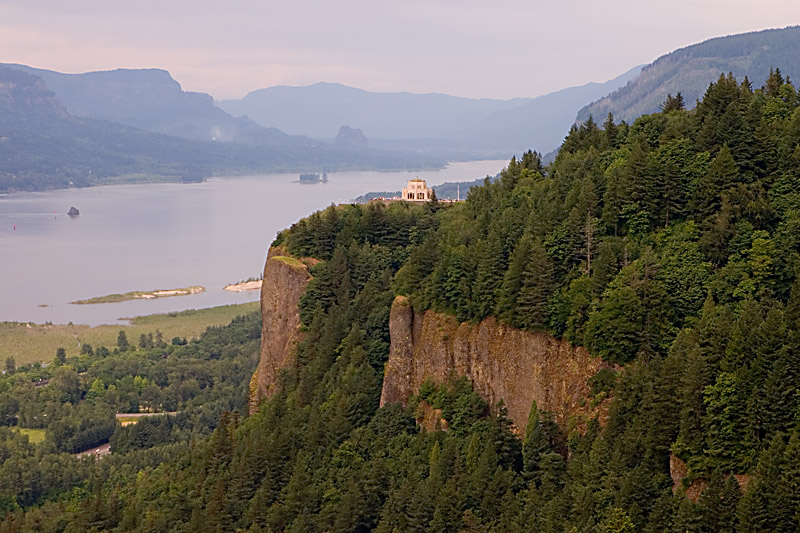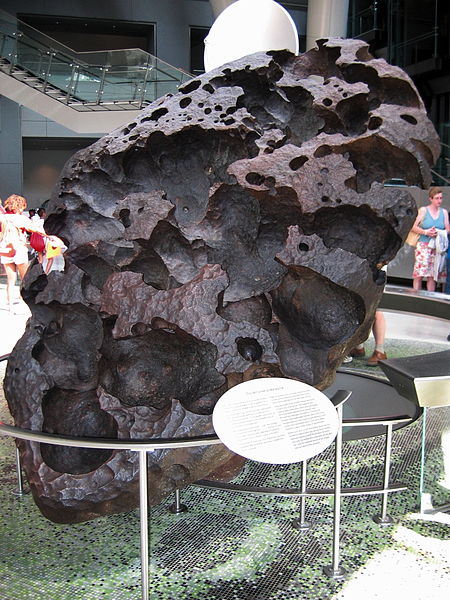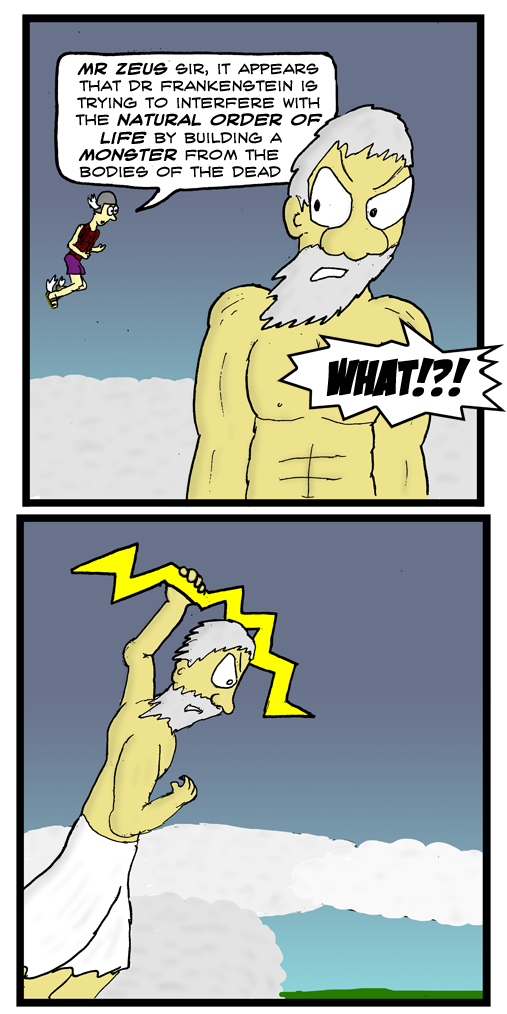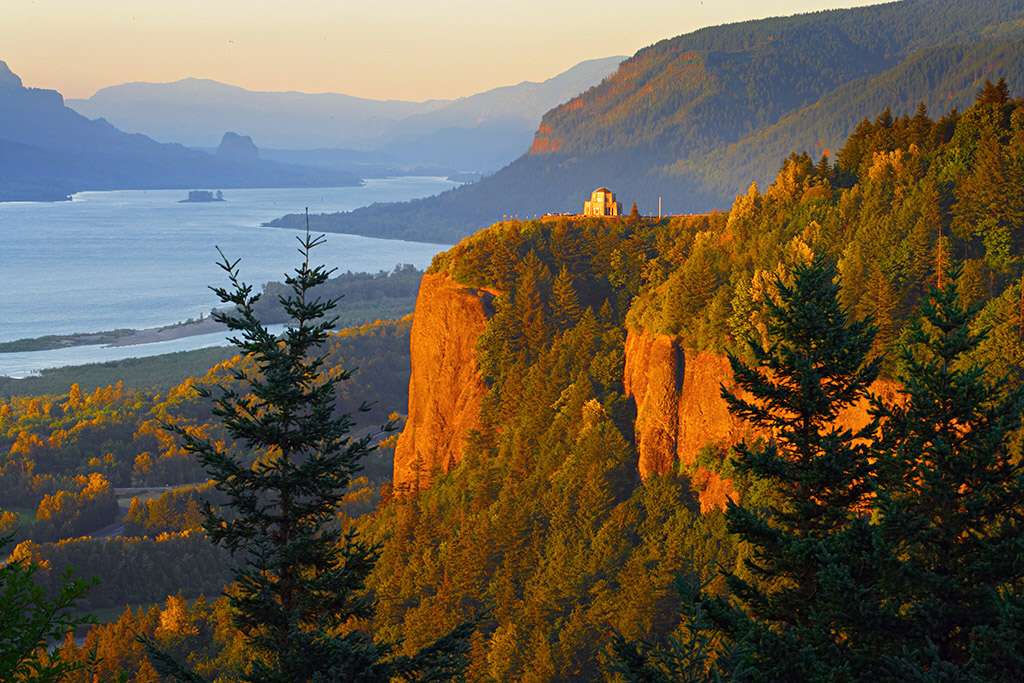Saturday, August 15, 2009
Why Everthing Sucks
Brian sent me this clip more than a week ago, and reminded me of it this morning... Thanks, Brian! I did enjoy it.
There's a Word For That
 Then there are the ones that are just puzzling... are these folks serious, or are they too protestbombing?
Then there are the ones that are just puzzling... are these folks serious, or are they too protestbombing? Via Monkey Muck. This has been going on for a while... this one goes back to the tax-day teabaggers:
Via Monkey Muck. This has been going on for a while... this one goes back to the tax-day teabaggers: How do you know this is protestbombing, not earnest white supremecy? Read his tee: "Listen to Bob Marley." And here's another from April, via Daily Kos.
How do you know this is protestbombing, not earnest white supremecy? Read his tee: "Listen to Bob Marley." And here's another from April, via Daily Kos. Good job, folks! This has got to be the best kind of bomb ever invented.
Good job, folks! This has got to be the best kind of bomb ever invented.
Friday, August 14, 2009
How Could I Have Been So Wrong?
Emphasis added for emphatic emphasis.Golly! Guess I have to vote 'pubblekin now. You know, I'll bet there's even other paragraphs that don't mention "En Aitch Ess." And I know the insurance corporations are so terribly generous in covering in-home care and experimental technologies and procedures.
NHS? En Aitch Ess? Did you read National Health Service there? No?? Amazing!! I didn’t either!
What I read was a grateful description of private expenditures (barter, private nurses, foundation grants, gifts). And thank God they were there in Dr. Hawking’s time of need.
Does that set the record straight?
There was a geology prof here at OSU who, as a polio survivor, made similar arrangements with grad students. The main difference was that he died young.
If smug were a commodity, this douche would be its baron.
Thursday, August 13, 2009
Hawking Up a Hairball
Investor's Business Daily recently made a boo-boo with respect to the health history of Stephen Hawking, and the nasty effects of living in a system of socialized medicine. The story, the half-assed correction, and Hawking's response, have been all over the place over the past day and a half, and I was not intending to pick it up. However, via Krugman, I hereby pass on the bestest response evar to that story.
Jay Bookman of the Atlanta Journal-Constitution caught the whopper and it was picked up by other outlets, including Talking Points Memo.
Here’s the original line, which is now stricken from the editorial:
People such as scientist Stephen Hawking wouldn’t have a chance in the U.K., where the National Health Service would say the life of this brilliant man, because of his physical handicaps, is essentially worthless.This is sick, dishonest stuff, so it’s sweet that Hawking himself calls it out, telling a TPM blogger “I wouldn’t be alive today if it weren’t for the NHS. I have received a large amount of high quality treatment without which I would not have survived.”
But IBD’s correction creates another problem. Here is its entire text:
Editor’s Note: This version corrects the original editorial which implied that physicist Stephen Hawking, a professor at the University of Cambridge, did not live in the UK.It has removed the Hawking reference from the story (even, apparently, in Factiva, which doesn’t have it either), but short-arms the correction, which should have read something like: “This version corrects the original editorial which falsely implied that physicist Stephen Hawking would be dead as a doornail if he lived in the UK and had to use the National Health. Hawking has lived in the UK his entire life, and as of press time, is still alive.
In my dream world they’d also tack on an “Also, this basically kills the premise of our entire editorial, which never should have been written. We resign in disgrace.”
Rational Political Discourse
 The sign reads "Death to Obama," and below, "Death to Obama, Michelle, and 2 stupid kids." Unfortunately, the Secret Service seems to have some reservations regarding rational political discourse, and have taken the patriot above into custody.
The sign reads "Death to Obama," and below, "Death to Obama, Michelle, and 2 stupid kids." Unfortunately, the Secret Service seems to have some reservations regarding rational political discourse, and have taken the patriot above into custody.On a related note, if you don't read Margaret and Helen, you're really missing out. Helen is the best thing since Molly Ivins. She put up a piece yesterday that was as bang on as anything she's ever done: "I remember an America where black men didn't grow up to be President"
I fear that the America they want back is the one where black men don’t become President. I remember that America. In that America people screaming at public gatherings were called out for what they were – an angry mob. Of course, they wore sheets to cover up their bad hair. Let’s be clear about something: if you show up to a town hall meeting with a gun strapped to your leg, the point you are trying to make isn’t a good one.(...)
And what’s all this crap about killing your grandmother? Are you people honestly that stupid? This has become less an argument about healthcare reform and more a statement about our failed education system. Margaret, I don’t know what plans you’ve made up there with Howard, but down here with Harold, we have living wills to determine how we will leave this world when the time comes. Mine states that unless the feeding tube is large enough for a piece of pie, I don’t want to be hooked up to it. Harold, of course, says his can only be connected to him if the other end is connected to a bottle of single malt scotch.Required reading.
Free Market
Recently, the US's health
Patient-> Doctor-> Consulting Firm-> Youth in Asia
With the costs of the latter three covered at least in part by the US Health Ministry.
(inspired by "Yellow Peril," over at Dr. Monkey's place, with accompanying photo)
Followup: Here's a home-based alternative.
Maybe If We Pray
 (Via) I try to limit my "descending upon" to chairs when I'm getting ready to blog.
(Via) I try to limit my "descending upon" to chairs when I'm getting ready to blog.
And This Would Be a Bad Thing?
(/snark)
Followup:
(snark)
I forgot to push the "publish" button, and went back to reading... just a few articles further on, I found another from The Guardian:
Mars, Nestlé, Krispy Kreme Doughnuts, Kraft Foods and Unilever have joined trade bodies and fellow manufacturers in a joint letter to the US agriculture department asserting that unless imports are increased, "our nation will virtually run out of sugar".(...)
"Experts forecast unprecedented shortages without prompt action," the manufacturers told agriculture secretary Tom Vilsack, citing a forecast from the government's own statistical literature which predicts that the US will end the next fiscal year with less than 13 days' worth of sugar on hand.We must not allow an obesity and cavity gap!
(/snark)
S-A-F-E-T-Y Math
He said, you know, to be really safe you should always carry a bomb on an airplane. Because the chances of there being one bomb on a plane are pretty small. But the chances of two bombs are almost minuscule. So by carrying a bomb on a plane, the odds of your becoming a hostage or of getting blown up are astronomically reduced.I've always enjoyed that passage at a number of levels, but the pertinent point here is the statistical misunderstanding. In this case, if a given passenger has brought a bomb onto a plane, the probability of a second passenger also having a bomb is unchanged; the two (possible) occurrences are said to be independent. If you just rolled a die and got a six, the probability of rolling a second die and getting a six is just the same as if you hadn't rolled the first die; again, the two events are independent. So carrying a bomb onto a plane, one that you will not detonate because you don't want to die, has absolutely no effect on the probability that someone else, with evil intentions, will.
It does, however, drastically increase the probability that a bomb will accidentally destroy your flight.
Now I don't really expect the wingers to understand probability and statistics. I'm not going to claim that I really understand the topic; it's often counter-intuitive, and it's often badly misused. I just wish more people had a sense of common techniques for how they're misused. Such an understanding might put an end to this sort of frightening nonsense. From Gail Collins' column today:
We are getting yet another series of reminders of the vast gun gap in this country. There is the part that thinks a room full of red-faced men and women screaming at one another is the worst place in the world to bring a firearm. And then there is the part that holds it is exactly the place where you need it most. “A firearm is a defensive tool,” said Kostric, in an interview with Chris Matthews on MSNBC. He was wearing a yellow T-shirt, and he told Matthews that if everybody in the crowd waiting for Obama to arrive had been armed, things would have been much safer.I was just skimming over Anderson's Wikipedia article to see if it was worth linking, and found this very appropriate bit of trivia to tack onto this post. Her first single was entitled, "It's Not the Bullet that Kills You (It's the Hole)."
So there's the bottom line: Guns don't kill people, holes do. In this case, it's the holes between too many people's ears.
Thank You, Les Paul

Les Paul, the virtuoso guitarist and inventor whose solid-body electric guitar and recording studio innovations changed the course of 20th-century popular music, died Thursday in White Plains. He was 94.I cannot begin to imagine my life without electric guitar. Les Paul was arguably its inventor. In a sense, he allowed the creation of the soundtrack for my life.
Mr. Paul’s style encompassed the twang of country music, the harmonic richness of jazz and, later, the bite of rock ’n’ roll. For all his technological impact, though, he remained a down-home performer whose main goal, he often said, was to make people happy.Thank you, Mr. Paul; you have contributed mightily to my happiness.
The First Bricks in the Wall
The Wall divided families. In this Aug. 26, 1961 photo, two women in West Berlin wave to family over the Wall.
This week the German capital remembered a very different summer morning in 1961. On August 13 that year, the first barricades between the eastern and western halves of the city went up. Those barricades would eventually come to be known as the Berlin Wall.I guess I hadn't quite realized the Berlin Wall got started so late. If I had been asked when it was first created, I would have guessed early to mid 50's. But I wasn't even two yet, and wasn't following the news very carefully. Der Spiegel has an article on the creation of the foremost symbol of the cold war, as well as a photo gallery
On August 12, the East German leadership had had enough. At 4 p.m., German Democratic Republic leader Walter Ulbricht signed the order to close the border. Within hours, the city was laced with barbed wire and crudely built brick walls, a 27-mile barrier snaking through the city. It was a reverse blockade: Instead of sealing West Berlin in, the GDR was keeping its own people in. Officially, the wall was there to protect east Germans from the evils of capitalism, to prevent "criminals and warmongers" from victimizing the fledgling nation. Unofficially, it was a last-ditch attempt to save the East German state from collapse by emigration.An extraordinarily important event- the article describes is as "one of the most momentous events of the 20th century-" I'm glad to have learned more about it.
Followup: The NYT has posted it's 1961 headline story for the anniversary.
Wednesday, August 12, 2009
The Great Flood
Sometime around 19,000 years ago, a glacier blocked the Clark Fork River, which flows through Missoula, Montana. An enormous lake filled in behind the glacial dam. Ice is a poor material to build dams with, since it floats. When the lake filled up enough to float the glacial tongue, the water started flowing beneath it, and the dam collapsed. About a month ago, I came across some video clips of a similar (though much smaller scale) modern analogue; I posted one of the clips here. Over a period of a couple of days, roughly 500 cubic miles of water drained from Lake Missoula, and roared out across eastern Washington, then down the Columbia River drainage.

Above: a map of the flooding in eastern and central Washington
The maximum rate of flow at the site of the ice dam has been estimated at 9.5 cubic miles of water per hour. If this rate were sustained, Glacial Lake Missoula would have drained in little more than two days. The maximum rate of flow at Wallula Gap has been estimated at 39.5 cubic miles per day, which would drain the lava field in about two weeks. But these maximum rates of flow probably could not have been maintained for that long. A realistic estimate of the duration of the flood, from the time when water first spilled over the ice dam to the time when scabland streams returned to normal flow, was probably about a month.Here is the Table of Contents for the above-quoted USGS pub. The erosive power and breadth of coverage of these floods is incomprehensible. For example, below is a Google Earth image looking roughly NE through the Columbia River Gorge.
 In the picture above I have labeled Chanticleer Point, Crown Point, and Mt Adams on the skyline. Below is a photo of Crown Point taken from Chanticleer Point.
In the picture above I have labeled Chanticleer Point, Crown Point, and Mt Adams on the skyline. Below is a photo of Crown Point taken from Chanticleer Point. That little cap where the Crown Point Vista House sits is approximately 733 feet above the river. The surface of that area was scoured clean when the floods over-topped the point. Below is a sort of cartoonish, quick graphic to illustrate how the same Google Earth View as above might have looked as the flood crested.
That little cap where the Crown Point Vista House sits is approximately 733 feet above the river. The surface of that area was scoured clean when the floods over-topped the point. Below is a sort of cartoonish, quick graphic to illustrate how the same Google Earth View as above might have looked as the flood crested. Likewise for the blued-out photo below:
Likewise for the blued-out photo below: I strongly recommend taking the Scenic Gorge Route, the Historic Columbia River Highway, through the western portion of the Gorge, especially if the weather is clear. The unique rectangular valley cross-sections carved by the Missoula Floods is apparent in the unmodified version of the photo, though heavily modified by post-glacial mass movement. Get off the highway at Exit 18, just east of Troutdale, and follow the marker signs- keep an eye out for these; they're not always as apparent as they might be. Stunning waterfalls and vistas await. The map below is a screen capture of a biking map and guide for the gorge. (1.6Mb PDF)
I strongly recommend taking the Scenic Gorge Route, the Historic Columbia River Highway, through the western portion of the Gorge, especially if the weather is clear. The unique rectangular valley cross-sections carved by the Missoula Floods is apparent in the unmodified version of the photo, though heavily modified by post-glacial mass movement. Get off the highway at Exit 18, just east of Troutdale, and follow the marker signs- keep an eye out for these; they're not always as apparent as they might be. Stunning waterfalls and vistas await. The map below is a screen capture of a biking map and guide for the gorge. (1.6Mb PDF) The Scenic Highway rejoins I-84 at Dodson. If you don't feel like you have time to do the scenic route, at least take time to stop at the Multnomah Falls pull-out. There's a parking area between the east- and west-bound lanes, with a tunnel under the highway and a short walk over to the tallest falls in Oregon. Again, much of the Gorge's scenic beauty can be ascribed to the massive erosive power of the Missoula floods, which steepened the valley walls to nearly vertical for much of the Columbia River's passage through the Cascade Mountains.
The Scenic Highway rejoins I-84 at Dodson. If you don't feel like you have time to do the scenic route, at least take time to stop at the Multnomah Falls pull-out. There's a parking area between the east- and west-bound lanes, with a tunnel under the highway and a short walk over to the tallest falls in Oregon. Again, much of the Gorge's scenic beauty can be ascribed to the massive erosive power of the Missoula floods, which steepened the valley walls to nearly vertical for much of the Columbia River's passage through the Cascade Mountains.As the Columbia River Gorge opens out into the Portland area, the waters slowed and spread out. A particularly notable feature near the mouth of the Gorge is Rocky Butte, right where Interstate 84 merges with I-205; the interchange is in the middle right side of the following Google Earth image. Rocky Butte is a more resistant volcanic core; the less resistant outer layers were removed during the flooding. Note the ridge of sediment extending in the downstream (west or left) direction from the north end of the butte, where the water slowed on the lee side of the butte. As you approach this from the south on 205, you can see an upstream trough carved out by the turbulence created when the flood waters encountered this resistant outcrop.
 Since the floods originated from a glacial collapse, rocks embedded in the ice were carried enormous distances in icebergs. It appears likely that the most famous of these was the Willamette Meteorite. Originally discovered near West Linn, Oregon, it now resides in the American Museum of Natural History in New York. Note that the Wikipedia entry on this (the previous link is preferred) indicates that the meteorite came to the location where it was discovered by glacial transport. Glaciers never came close to that portion of the Willamette Valley floor. A Google search for "Willamette Meteorite" was a little disappointing; much of the information is just wrong, and most of the pages I looked at were incomplete or very narrowly focused on one aspect of this fascinating rock- the largest meteorite ever discovered in the United States.
Since the floods originated from a glacial collapse, rocks embedded in the ice were carried enormous distances in icebergs. It appears likely that the most famous of these was the Willamette Meteorite. Originally discovered near West Linn, Oregon, it now resides in the American Museum of Natural History in New York. Note that the Wikipedia entry on this (the previous link is preferred) indicates that the meteorite came to the location where it was discovered by glacial transport. Glaciers never came close to that portion of the Willamette Valley floor. A Google search for "Willamette Meteorite" was a little disappointing; much of the information is just wrong, and most of the pages I looked at were incomplete or very narrowly focused on one aspect of this fascinating rock- the largest meteorite ever discovered in the United States. Rocks transported from their original provenance by glacial ice or glacial flooding are called erratics. The floodwaters backed up into the Willamette Valley to a crest elevation of about 400 feet. For comparison, here at my favorite coffee shop, I'm sitting at about 250 feet. Boulders of rocks not native to Oregon have been found all over the valley; the largest is "protected" in a State park, about an hour and a half north of Corvallis, at Erratic Rock State Natural Site. This originally 40-ton boulder has been much reduced by people taking samples; please don't.
Rocks transported from their original provenance by glacial ice or glacial flooding are called erratics. The floodwaters backed up into the Willamette Valley to a crest elevation of about 400 feet. For comparison, here at my favorite coffee shop, I'm sitting at about 250 feet. Boulders of rocks not native to Oregon have been found all over the valley; the largest is "protected" in a State park, about an hour and a half north of Corvallis, at Erratic Rock State Natural Site. This originally 40-ton boulder has been much reduced by people taking samples; please don't.Geologically, the rock comes from Canada and is the largest glacial erratic rock in the Willamette Valley. The rock is argillite believed to be 600,000 million years old and originally part of the sea-floor. It is also the only rock of its type outside of Canada.It may be from Canada, but I don't know that that is confirmed. It is an argillite, though with sandy (quartzite) interbeds; I think it might be better described as a metmorphosed turbidite, which yes, would have originated on the sea floor. And as I noted above, it is the largest known erratic in the Willamette Valley. It is not the only rock of its type outside of Canada. It is also most certainly not 600 billion years old- that would make it more than 40 times older than the universe. It is, however, large enough to show up in Google Earth satellite imagery. That's it just to the right of the Wikipedia "W," with the paved pathway around it.
 Below is a Google map of how to find it; coming from Corvallis, it's sort of out of the way. I generally tell people that, from here, it's not really worth a trip just for the wayside, but if you're headed that direction anyway, it's well worth the side trip. More impressive than the rock itself is the view out across the valley-look back at the photo for a moment- and contemplating exactly what the rock's presence on the hilltop is telling you.
Below is a Google map of how to find it; coming from Corvallis, it's sort of out of the way. I generally tell people that, from here, it's not really worth a trip just for the wayside, but if you're headed that direction anyway, it's well worth the side trip. More impressive than the rock itself is the view out across the valley-look back at the photo for a moment- and contemplating exactly what the rock's presence on the hilltop is telling you. This might actually be best on the return to Corvallis, after you have seen some of the more spectacular features created by the floods. Picture a temporary, turbid lake extending out from this hill, filling the valley below you.
This might actually be best on the return to Corvallis, after you have seen some of the more spectacular features created by the floods. Picture a temporary, turbid lake extending out from this hill, filling the valley below you.This is nothing approaching a complete overview; I know Cliff has done more background research on the scablands than I have, so I really haven't said much about them. But a few pieces that offer a more complete version of the story or other tidbits of interesting info include:
A piece done for the Geoblogosphere's Accretionary Wedge in June.
Another piece for June's wedge- great pictures and LOTS of amazing info.
The USGS paper linked earlier is worth a look.
Congress Rubber Stamps Ice Age Floods National Geologic Trail (This was just confirmed in May)
The Ice Age Floods Institute is the group coordinating the trail effort.
And I'll finish it up with one more photo of Crown Point at sunset. To me, the single most impressive and mind boggling fact I know about these floods is that they overtopped the spot where that building sits. Truly beyond comprehension.
Learning From The Experience of Others
In a piece yesterday, I posted a followup link to a Guardian article noting the British reaction to incendiary attacks from US opponents of health care reform. There's another article in The Guardian today discussing how both countries are missing the opportunity to learn from each other.
Ask Americans why they're sceptical about healthcare reform and they'll say that don't want to end up like Britain: they don't want long waits or rationing. Americans' fears about the NHS were stoked by a series of television ads highlighting heart-wrenching accounts of sub-standard care in the NHS. While some of the content in the ads touch on cancer care, which is arguably the achilles heel of the NHS, there is nothing in what President Obama is proposing that would lead to these types of challenges in the US and the ads mask the positive aspects of the NHS.Unfortunately, as long as one major political party believes that ignorance, ideological and religious faith, and temper tantrums form the basis of productive political discourse, I don't think the US at large is going to be doing any learning for the foreseeable future.
Likewise, ask the British why they're sceptical about efforts to increase patient choice and competition and rely more heavily on private healthcare providers and they'll say that they don't want to end up like the US: they don't want people denied care because they can't pay, and they've heard the US doesn't perform well relative to what it spends. Indeed, an entire issue of the British Medical Association's BMA News was spent raging against market forces in healthcare and pleading not to turn the NHS into an American-style system.
Tuesday, August 11, 2009
Awful Library Books
Ultimate Collection of Computer Facts and FunThe computer I had in 1991, an Atari 1040 ST, was the one I did all of my master's work on: around two thousand pages of writing, projects, lessons plans, and on and on. It had a jaw-dropping one whole megabyte of RAM- and I don't mean that facetiously; it really was an amazing number to me. This computer has 768 times that, and a 30 Gb hard drive- the latter being something my old Atari was not blessed with. So perhaps a more accurate title would be "Ultimate Collection of Obsolete Computer Facts and Fun From When Your Parents Were Your Age." Clunky title, but accurate.
Tison & Woodside
1991
Here's another comically bad example:

My Cat’s in Love or, How to Survive Your Feline’s Sex life, Pregnancy and KitteningSo if your summer reading list is getting short, this is the site to visit for examples of things you don't want to bother even looking at. (Via)
Manolson
1970
Do You See What I See?
 Sort of flower-petal-shaped spirals of squares, right?
Sort of flower-petal-shaped spirals of squares, right?Wrong. It's four concentric circles.
I try to add something extra to stuff I swipe from elsewhere, though I don't always. I've seen this a few times in the past day, but I just noticed that if you back up from the screen about 10 to 15 feet, you will actually be able to see the circles rather than the (nonexistent) spirals. (Via)
The White House Finally Weighs In
* No Discrimination for Pre-Existing ConditionsI think this is good as far as it goes. It's been pretty obvious for a while that single payer (which Obama never supported) was dead, and the public option looks unlikely. But no clear word on the individual mandate issue (requiring everybody to be covered), which I oppose without provisions for the poor and destitute. There's also nothing preventing the insurance companies from doubling or tripling their rates to keep their profit margins high. Or quadrupling or quintupling premiums if an insured person develops an expensive condition.
-Insurance companies will be prohibited from refusing you coverage because of your medical history.
* No Exorbitant Out-of-Pocket Expenses, Deductibles or Co-Pays
-Insurance companies will have to abide by yearly caps on how much they can charge for out-of-pocket expenses.
* No Cost-Sharing for Preventive Care
-Insurance companies must fully cover, without charge, regular checkups and tests that help you prevent illness, such as mammograms or eye and foot exams for diabetics.
* No Dropping of Coverage for Seriously Ill
-Insurance companies will be prohibited from dropping or watering down insurance coverage for those who become seriously ill.
* No Gender Discrimination
-Insurance companies will be prohibited from charging you more because of your gender.
* No Annual or Lifetime Caps on Coverage
-Insurance companies will be prevented from placing annual or lifetime caps on the coverage you receive.
* Extended Coverage for Young Adults
-Children would continue to be eligible for family coverage through the age of 26.
* Guaranteed Insurance Renewal
-Insurance companies will be required to renew any policy as long as the policyholder pays their premium in full. Insurance companies won't be allowed to refuse renewal because someone became sick.
I'm most concerned about that "Death Panel" provision, though. (Via)
Followup: British diplomats and other officials are irritated by and confused about how to deal with republican misrepresentations of their National Health Service.
Opt Out of Google!
Google Opt Out Feature Lets Users Protect Privacy By Moving To Remote Village
Monday, August 10, 2009
Soon To Be A Memory
"It's, uh, field burning...?"
I had never heard of such a thing, but remember, in summer of 1980, we were about to elect Ronnie Ray Gun president, and people my age grew up expecting to die- sooner rather than later- in a nuclear holocaust.
"You're sure?"
"Um... Yes?"
"Okay... sorry"
Now I suppose if you grew up or had spent some summers in the the Willamette Valley, you wouldn't think twice about it, and I know controlled burning is and long has been an important tool in agricultural management. Here, it's used mostly for hay and grass seed, two important products in this region; it gets rid of older waste that would shade and interfere with a second harvest's growth, and it kills a wide variety of pests and their eggs. The series of photos below were taken over a period of a few minutes.
 The source of the fire is probably (from this perspective) below the street lamp; there's a mild northward wind, so the smoke column is leaning somewhat to the north. The view is eastward. As the column rises, it encounters a stronger northward wind and tips more strongly in that direction.
The source of the fire is probably (from this perspective) below the street lamp; there's a mild northward wind, so the smoke column is leaning somewhat to the north. The view is eastward. As the column rises, it encounters a stronger northward wind and tips more strongly in that direction. The smoke was yellower than the photo shows, but note the distinct change in texture and color (from light gray to bright white) right about where the wispy cirrus cloud goes behind the plume on the right. At that level, the smoke-filled ground-level air has been lofted high enough, and cooled enough adiabatically, that an actual cloud forms as moisture condenses.
The smoke was yellower than the photo shows, but note the distinct change in texture and color (from light gray to bright white) right about where the wispy cirrus cloud goes behind the plume on the right. At that level, the smoke-filled ground-level air has been lofted high enough, and cooled enough adiabatically, that an actual cloud forms as moisture condenses. Field burning used to be very, very common, like the wigwam burners used to be in the timber industry. However there was a terrible accident due to smoke from a burn in 1988:
Field burning used to be very, very common, like the wigwam burners used to be in the timber industry. However there was a terrible accident due to smoke from a burn in 1988:Their plans ended forever when the smoke of a field burn blew across the highway on the afternoon of Aug. 3, 1988. Blinded by the smoke and in the smoky darkness the Rodewald’s van was hit from behind by an 18-wheeler and shoved beneath the vehicle in front of them. The family was burned alive in the fire that swept over the accident. In all, seven people were killed and 38 were injured in the 23-vehicle disaster that made headlines across the country. The only member of the du Aime-Rodewald family to survive that day was Kate’s son Wills, who had stayed home with his grandmother.Afterwards, field burning was heavily monitored, restricted and regulated. The annual acreage burnt has dropped from about 170,000 to about 50,000. A bill is currently wending its way through the Oregon Legislature to restrict it even more heavily, due to concerns regarding respiratory health; burning will be restricted to a few particular counties and a few particular crops. The annual acreage burnt is estimated to drop to 15,000, less than a tenth of that when I was an undergrad here in my little burg.
 Like the wigwam burners, alternate methods of management have emerged, and I expect the days of controlled burns are numbered. I don't think that's a bad thing. But while I still get a bit of a nervous, startled, thrill when I unexpectedly catch a glimpse of a roiling mushroom cloud rising above the horizon, there is a wistfulness in me to think that these icons of late mid-valley summer will eventually vanish into the mist of history.
Like the wigwam burners, alternate methods of management have emerged, and I expect the days of controlled burns are numbered. I don't think that's a bad thing. But while I still get a bit of a nervous, startled, thrill when I unexpectedly catch a glimpse of a roiling mushroom cloud rising above the horizon, there is a wistfulness in me to think that these icons of late mid-valley summer will eventually vanish into the mist of history.
I Like Catastrophic Explosions
Sunday, August 9, 2009
What Are We Afraid Of?
At any rate, I'm catching up on my backlog of lots of stuff. The title is the last comment at the end of this clip from Library Grape; The audience boos and yells at their (republican) representative when he suggests that "I'm just frightened for my country" Glenn Beck may not be the best source for reliable news.
I would love to see the Onion do one of their USA Today graphic style send-ups of "What are we afraid of?"
North Korean Space Program

see more Political Pictures
I recaptioned it as follows:

moar funny pictures
Dang! Those guys are good!
Sunday Funnies
 Iris reacted with a faceplant on the table to this one... "Do they not even look at what they're writing and printing?"
Iris reacted with a faceplant on the table to this one... "Do they not even look at what they're writing and printing?" Above and below, a couple of succesories from How's That For a Slice of Fried Gold? Six more commentator take-downs at the link.
Above and below, a couple of succesories from How's That For a Slice of Fried Gold? Six more commentator take-downs at the link.
 Tee of the day, from The Daily What.
Tee of the day, from The Daily What. And below is another. Two others I really liked were the physics of ice-cold drinks, and Shakespearean quadratics.
And below is another. Two others I really liked were the physics of ice-cold drinks, and Shakespearean quadratics. 
 Savage Chickens
Savage Chickens From Librabry Grape, the best fake Obama Birth Certificate EVAR!
From Librabry Grape, the best fake Obama Birth Certificate EVAR!
see more Political Pictures

see more Lolcats and funny pictures
 Oddee had a collection of 10 funny doormats; the above was first, and my favorite.
Oddee had a collection of 10 funny doormats; the above was first, and my favorite.

see more Lolcats and funny pictures

see more Lolcats and funny pictures

My husband and I were exploring Lake Minnewanka in Banff National Park, Canada, when we stopped for a timed picture of the two of us. We had our camera set up on some rocks and were getting ready to take the picture when this curious little ground squirrel appeared, became intrigued with the sound of the focusing camera and popped right into our shot! A once in a lifetime moment! We were laughing about this little guy for days(from Nat. Geo. via The Daily What)
What every home needs: A multi-media washer. Can I get the internets on it?
 From Criggo.
From Criggo.In a comment at the GraphJam climate change meme, I found this Toles sketch:


see more Lol Celebs

see more Lol Celebs
He's No Bush
...last month several leading Democrats — including Representatives Barney FrankMeet the new boss...
of Massachusetts and David R. Obey of Wisconsin — sent a letter to Mr. Obama
complaining about one of his signing statements.
“During the previous administration, all of us were critical of the president’s assertion that he could pick and choose which aspects of Congressional statutes he was required to enforce,” they wrote. “We were therefore chagrined to see you appear to express a similar attitude.”
Followup: Frank Rich agrees, in a disheartening column.
The best political news for the president remains the Republicans. It’s a measure of how out of touch G.O.P. leaders like Mitch McConnell and John Boehner are that they keep trying to scare voters by calling Obama a socialist. They have it backward. The larger fear is that Obama might be just another corporatist, punking voters much as the Republicans do when they claim to be all for the common guy. If anything, the most unexpected — and challenging — event that could rock the White House this August would be if the opposition actually woke up.













